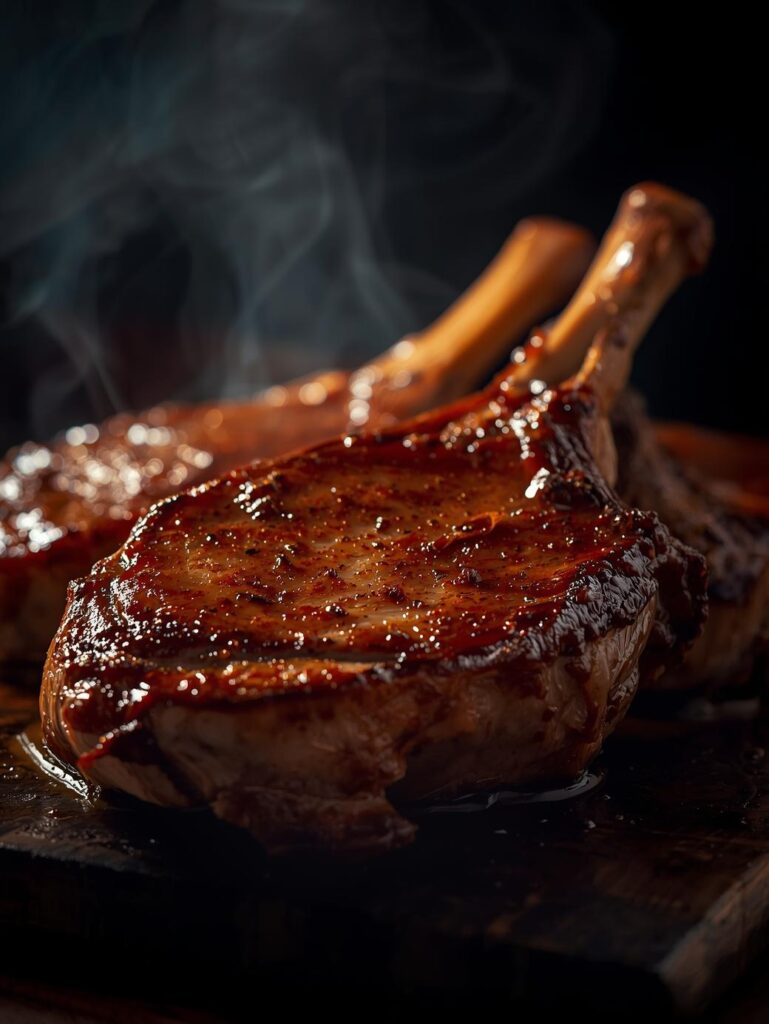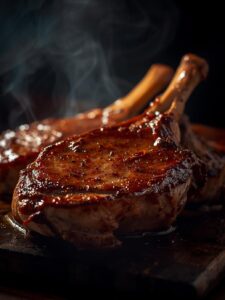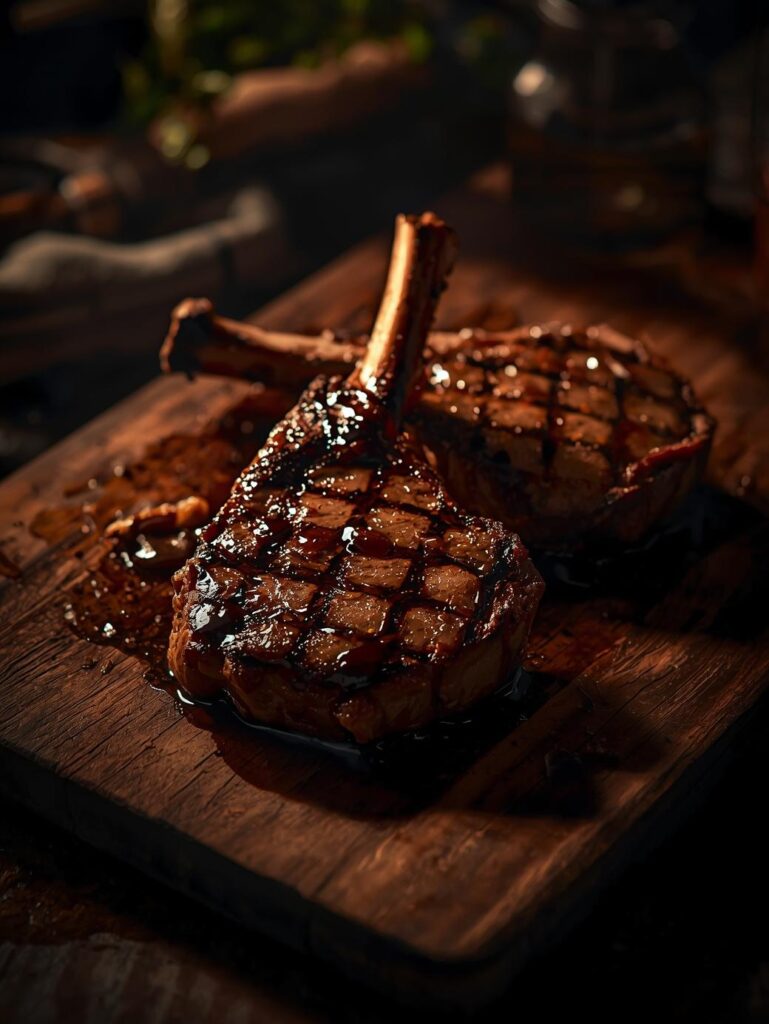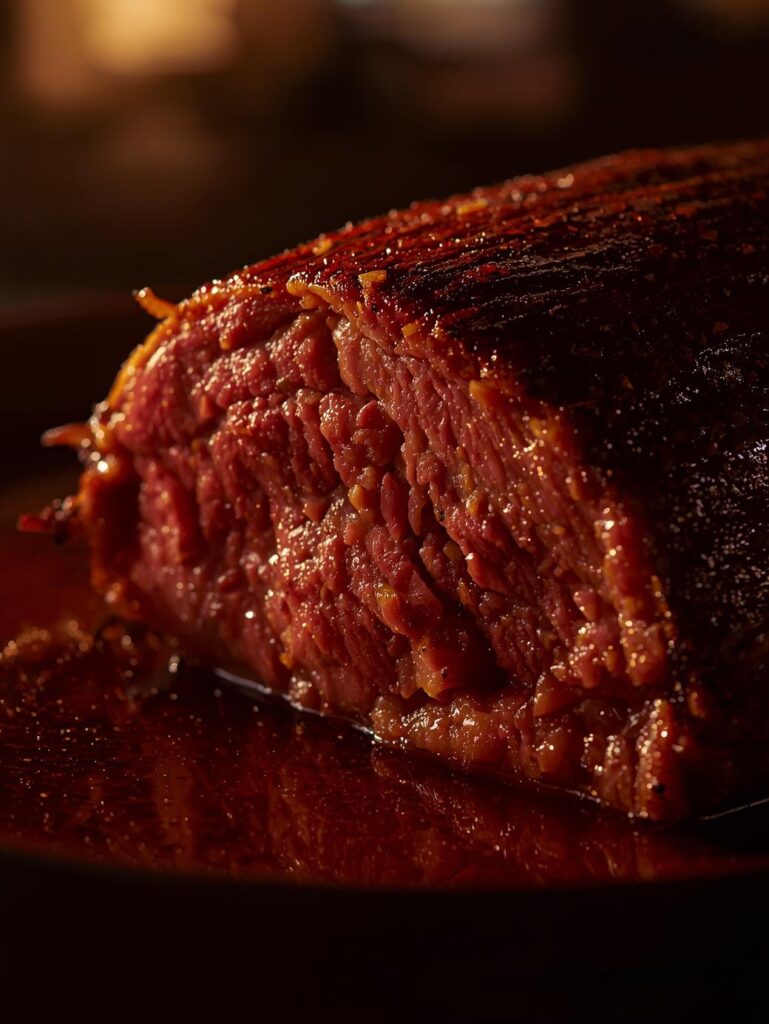Expert’s Note: This pork chop mastery guide builds upon our Pork Cuts Encyclopedia. Pork chops represent one of the most misunderstood cuts in barbecue—when done right, they’re juicy and flavorful; when done wrong, they’re dry and disappointing. This guide ensures you always achieve the former.
Pork Chops: The Complete Guide to Juicy, Flavorful Perfection Every Time
“A perfect pork chop is a study in contrasts: a seared, savory crust giving way to tender, juicy interior. The difference between a dry, tough chop and a succulent masterpiece isn’t luck—it’s understanding that pork chops demand respect. They’re not steaks, they’re not chicken—they’re pork chops, and they have their own rules for greatness.”
Pork Chops: The Complete Guide to Juicy, Flavorful Perfection Every Time
Download our Pork Chop Cooking Matrix - Temperatures, timing, and techniques for every thickness
Pork chops have suffered from decades of overcooking and misunderstanding. The era of dry, gray pork is over. Modern pork is leaner, safer, and when cooked properly, competes with the best steaks for flavor and satisfaction. This guide will transform your approach to pork chops, turning them from a risky weeknight dinner into a guaranteed crowd-pleaser that will have everyone asking for your secret.
🎯 UNDERSTANDING PORK CHOP ANATOMY
Not all pork chops are created equal—knowing your cuts is the first step to mastery.
⚙️ The Four Major Pork Chop Types
From Rib to Sirloin – Know Your Chop
- Rib Chop (The Classic): Identifiable by the single bone and generous marbling. This is your most flavorful and forgiving chop, with a perfect balance of meat and fat. The “ribeye of pork.”
- Loin Chop (The T-Bone): Contains both tenderloin and loin sections separated by a T-shaped bone. Two textures in one chop—tender and lean meets hearty and flavorful.
- Boneless Loin Chop (The Convenience): All lean loin meat, no bone. Cooks quickly but can dry out faster. Perfect for quick weeknight meals with proper technique.
- Shoulder Chop (The Budget Hero): Also called blade chops, these are tougher but incredibly flavorful. Require slower cooking methods to break down connective tissue.
🎯 Pork Chop Selection Matrix
🎯 Choosing the Right Chop for Your Meal
| Chop Type | Best For | Thickness Ideal | Special Considerations |
|---|---|---|---|
| Rib Chop | Grilling, pan searing | 1-1.5 inches | Most forgiving, great marbling |
| Loin Chop (T-Bone) | Grilling, roasting | 1-2 inches | Two cooking zones, watch tenderloin side |
| Boneless Loin | Quick cooking, stuffing | 1-1.5 inches | Dries easily, needs careful timing |
| Shoulder Chop | Braising, slow cooking | 0.5-1 inch | Tough if grilled fast, better low & slow |
🔥 THE FOOLPROOF PORK CHOP COOKING METHOD
This two-stage process guarantees juicy results every time, regardless of cooking method.
📝 The Universal Pork Chop Protocol
The Sequence for Certain Success
- Brining (Optional but Recommended): For boneless or lean chops, brine 1-2 hours in 1/4 cup salt + 1 quart water. For bone-in chops, dry brine with salt 45 minutes before cooking.
- Bring to Room Temp: 30 minutes out of refrigerator removes the chill for even cooking.
- Pat Dry & Season: Critical step! Moisture prevents browning. Pat thoroughly dry, then season generously.
- Sear to Crust: High heat to develop Maillard reaction—that flavorful brown crust.
- Finish to Temperature: Lower heat or indirect heat to bring to perfect doneness without burning.
- Rest & Serve: 5-10 minute rest allows juices to redistribute. Never skip this!
🌡️ PORK CHOP TEMPERATURE MASTERY
The single most important factor in juicy pork chops is nailing the temperature.
📊 The New Pork Temperature Reality
🎯 USDA Guidelines vs. Modern Reality
| Doneness Level | USDA Recommended | Chef Recommended | Texture & Color |
|---|---|---|---|
| Medium Rare | Not Recommended | 135-140°F | Warm pink center, very juicy |
| Medium | 145°F (with rest) | 140-145°F | Slight pink, maximally juicy |
| Medium Well | 150°F | 150-155°F | Hint of pink, still moist |
| Well Done | 160°F+ | 160°F+ | Gray throughout, dry |
Temperature Truth: Modern pork production has eliminated trichinosis risk in commercially raised pork. Cooking to 145°F followed by a 3-minute rest makes pork perfectly safe while keeping it juicy. The pink you see at 145°F is myoglobin, not blood, and indicates perfect doneness.
🍳 COOKING METHODS: CHOOSING YOUR APPROACH
Different cooking methods suit different occasions and chop types.
🔥 Grilling Method
The Classic Backyard Approach
- Best For: Bone-in rib chops, loin chops
- Grill Temp: 450-500°F (medium-high)
- Technique: Two-zone fire. Sear over direct heat 2-3 minutes per side, then move to indirect to finish to temperature
- Pro Tip: Brush with oil to prevent sticking. Use a thermometer—don’t guess doneness
- Finish: Brush with herb butter during last minute
🍳 Pan Searing Method
Restaurant-Quality Results Indoors
- Best For: All chop types, especially boneless
- Pan: Cast iron or heavy stainless steel
- Technique: High heat with oil until smoking. Sear 3-4 minutes per side, then finish in 400°F oven if needed
- Pro Tip: After flipping, add butter, garlic, and herbs to pan and baste continuously
- Bonus: Deglaze pan with wine or stock for instant pan sauce
🌡️ Reverse Sear Method
Perfect Edge-to-Edge Doneness
- Best For: Thick chops (1.5 inches or more)
- Technique: Oven at 275°F until 120°F internal, then sear in hot pan 60-90 seconds per side
- Advantage: No gray bands, perfectly even cooking
- Pro Tip: The low heat dries the surface for incredible crust formation
- Perfect For: Special occasions, showing off your skills
💧 Brining & Smoking
Low & Slow Flavor Infusion
- Best For: Bone-in chops, creating BBQ flavor
- Technique: Wet brine 4-12 hours, smoke at 225°F until 140°F internal
- Wood: Apple, cherry, or pecan for sweet smoke
- Pro Tip: Use a water pan in smoker to maintain moisture
- Finish: Quick sear on grill for crust if desired
🧂 SEASONING & FLAVOR ENHANCEMENT
Pork’s mild flavor makes it the perfect canvas for creative seasoning.
📋 Flavor Profile Matrix
🎯 Seasoning Combinations That Work
| Flavor Profile | Seasoning Blend | Best Cooking Method | Wine Pairing |
|---|---|---|---|
| Classic American | Salt, pepper, garlic powder, smoked paprika | Grilling, pan searing | Chardonnay, Pinot Noir |
| Herb Garden | Rosemary, thyme, sage, lemon zest | Pan searing with butter baste | Sauvignon Blanc |
| Sweet & Smoky | Brown sugar, chili powder, cumin, coffee | Smoking, grilling with indirect heat | Zinfandel, Amber Ale |
| Asian Inspired | Five-spice, ginger, soy, sesame | Grilling, broiling | Riesling, Sake |
🚨 PORK CHOP TROUBLESHOOTING GUIDE
🎯 Common Problems & Solutions
| Problem | Symptoms | Cause | Solution |
|---|---|---|---|
| Dry, Tough Chop | Sawdust texture, no juice | Overcooked, too lean, no fat | Cook to 145°F max, choose rib chops, brine |
| Pale, No Crust | Steamed appearance, weak flavor | Wet surface, insufficient heat | Pat dry thoroughly, get pan/grill hotter |
| Curled Chop | Edges curl up, uneven cooking | Fat cap not scored, tight silver skin | Score fat cap every inch, remove silver skin |
| Burnt Outside/Raw Inside | Black crust, cool center | Too high heat, too thick, no two-zone | Use two-zone cooking, reverse sear thick chops |
| Sticks to Grill | Tearing, losing crust | Grill not hot/oiled, moved too soon | Oil grates, wait for release (3-4 minutes) |
🏁 THE PORK CHOP RENAISSANCE
The days of dry, overcooked pork chops are over. With modern understanding of food safety and proper cooking techniques, pork chops have earned their place as a premium, versatile protein that can stand alongside the best steaks and chicken. The key lies in respecting their unique characteristics—their leanness, their need for precise temperature control, and their incredible ability to carry flavors.
Remember that pork chops are not “the other white meat”—they’re pork, with their own distinct personality and requirements. When treated with the care they deserve, they reward you with juicy, flavorful meals that will make you wonder why you ever feared cooking them.
Your mission: Start with a simple 1-inch thick rib chop. Use the pan-searing method with the butter baste. Cook to 145°F exactly, rest for 5 minutes, and experience the revelation of a perfectly cooked pork chop. This one success will rebuild your confidence and open up a world of pork possibilities.
The perfect pork chop isn’t a mystery—it’s a method. And now you have that method.
🐖 MASTER PORK CHOPS →
Get our complete pork chop recipe collection with brines, rubs, and cooking techniques
Continue Your Pork Mastery Journey: Explore the wonderful world of pork:







